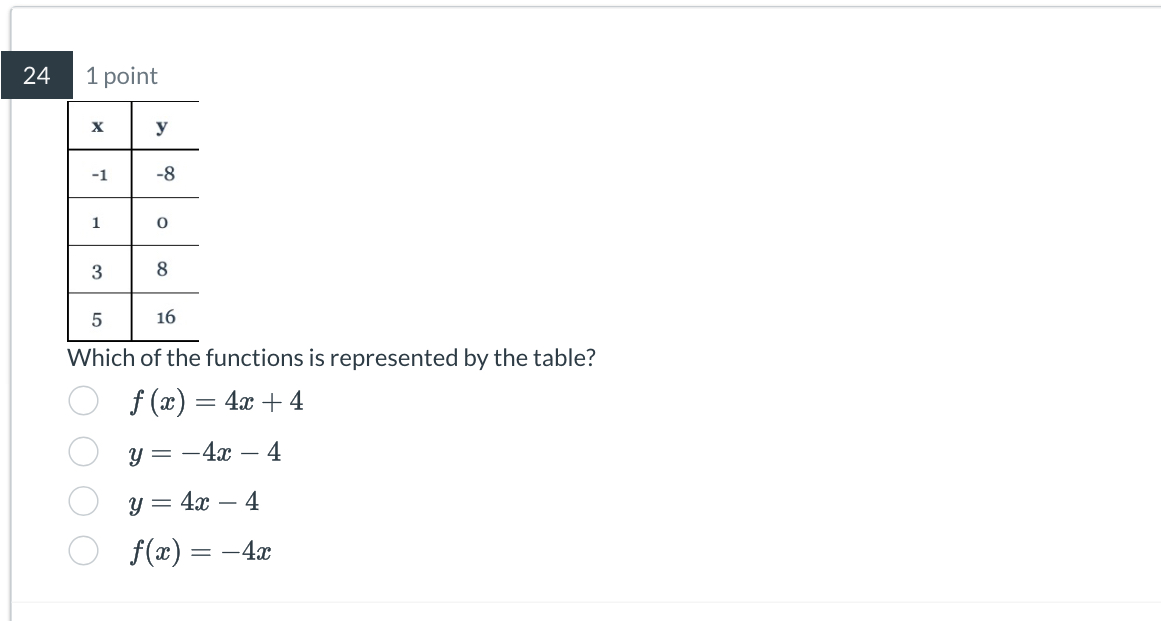Which of the functions is represented by the table?

Understand the Problem
The question asks to identify which mathematical function corresponds to the provided table of values, where the columns 'x' and 'y' show pairs of inputs and outputs. The goal is to derive or recognize the correct function from the given options.
Answer
The function is $y = 4x - 4$.
Answer for screen readers
The function represented by the table is $y = 4x - 4$.
Steps to Solve
- Identify the function type
First, we note that we are looking for a linear function of the form $y = mx + b$, where $m$ is the slope and $b$ is the y-intercept. We will calculate the slope using two points from the table.
- Calculate the slope (m)
Using points (-1, -8) and (1, 0):
The formula for slope is:
$$ m = \frac{y_2 - y_1}{x_2 - x_1} $$
Substituting the values:
$$ m = \frac{0 - (-8)}{1 - (-1)} = \frac{0 + 8}{1 + 1} = \frac{8}{2} = 4 $$
- Find the y-intercept (b)
Next, we use one of the points (1, 0) and the slope $m = 4$ to find $b$.
Using the equation $y = mx + b$:
$$ 0 = 4(1) + b $$
Solving for $b$ gives:
$$ b = 0 - 4 = -4 $$
So, the function is:
$$ y = 4x - 4 $$
- Check against the options
Now we compare our derived function $y = 4x - 4$ with the given options.
- $f(x) = 4x + 4$ (not correct)
- $y = -4x - 4$ (not correct)
- $y = 4x - 4$ (correct)
- $f(x) = -4x$ (not correct)
- Verify with the table of values
Finally, we can check if our function $y = 4x - 4$ satisfies all points in the table:
For $x = -1$: $$ y = 4(-1) - 4 = -4 - 4 = -8 $$
For $x = 1$: $$ y = 4(1) - 4 = 0 $$
For $x = 3$: $$ y = 4(3) - 4 = 12 - 4 = 8 $$
For $x = 5$: $$ y = 4(5) - 4 = 20 - 4 = 16 $$
All values match with the table.
The function represented by the table is $y = 4x - 4$.
More Information
The function $y = 4x - 4$ is a linear function where the slope is 4, indicating it rises steeply, and the y-intercept is -4, where it crosses the y-axis.
Tips
Common mistakes include:
- Miscalculating the slope due to incorrect point selection.
- Failing to check all provided values against the derived function, resulting in selecting a wrong answer.
AI-generated content may contain errors. Please verify critical information